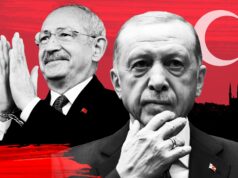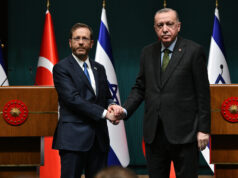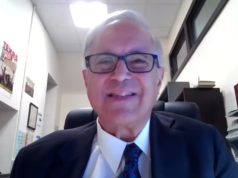Turkish Prime Minister Recep Tayyip Erdogan was voted CNN Arabic’s 2010 “Man of the Year” by the portal’s readers on Sunday. Winning by a large margin, Erdogan garnered 74 percent of the vote, while Syria’s President Bashar al-Assad came in second with just 20 percent. According to the news outlet, based in Dubai, the results of the poll represent the “general mood of the Arab street.”
The CNN Arabic website said Erdogan’s win is attributed to his recent diplomatic successes, pointing to the PM’s stance at the Davos summit, his response to the Gaza Flotilla incident, and his role as a mediator between Iran and the world, among other issues.

Turkish Prime Minister Recep Tayyip Erdogan |
|
The implications are telling. CNN Arabic’s readers are clearly stating that Erdogan’s new-found inflated status is due to his overtly critical stances on Israel in 2009 and 2010, and his decision to shun the West. In 2009, the Turkish PM walked out of the Davos summit during a debate with Israeli President Shimon Peres on Gaza. “When it comes to killing, you know well how to kill,” Erdogan told the Israeli president. He did not attend the summit in 2010.
In May 2010, after Israeli soldiers boarded a flotilla bound for Gaza that resulted in the death of nine Turkish activists, PM Erdogan accused Israel of “state terrorism” and recalled Turkey’s ambassador from the country. To this day, Erdogan demands an apology from Israel.
And when it came to Iran, a devoted enemy to Israel, Turkey made efforts in 2010 to build closer ties with the Islamic country by first offering a nonsensical uranium-swap deal that allowed Iran to keep enriching uranium toward the pursuit of a nuclear weapon, and when that failed, by voting against UN sanctions on Iran.
The poll’s results indicate that Erdogan is being hailed for turning Turkey’s gaze East after decades of trying to “join the European club,” as CNN Arabic put it. Under PM Erdogan and his AKP party’s rule, this has been the case. But it doesn’t have to be. With Turkey’s national elections scheduled for this summer, Washington and her allies should make a point to send a clear message to the Turkish population on the dangers of turning East with Erdogan.





